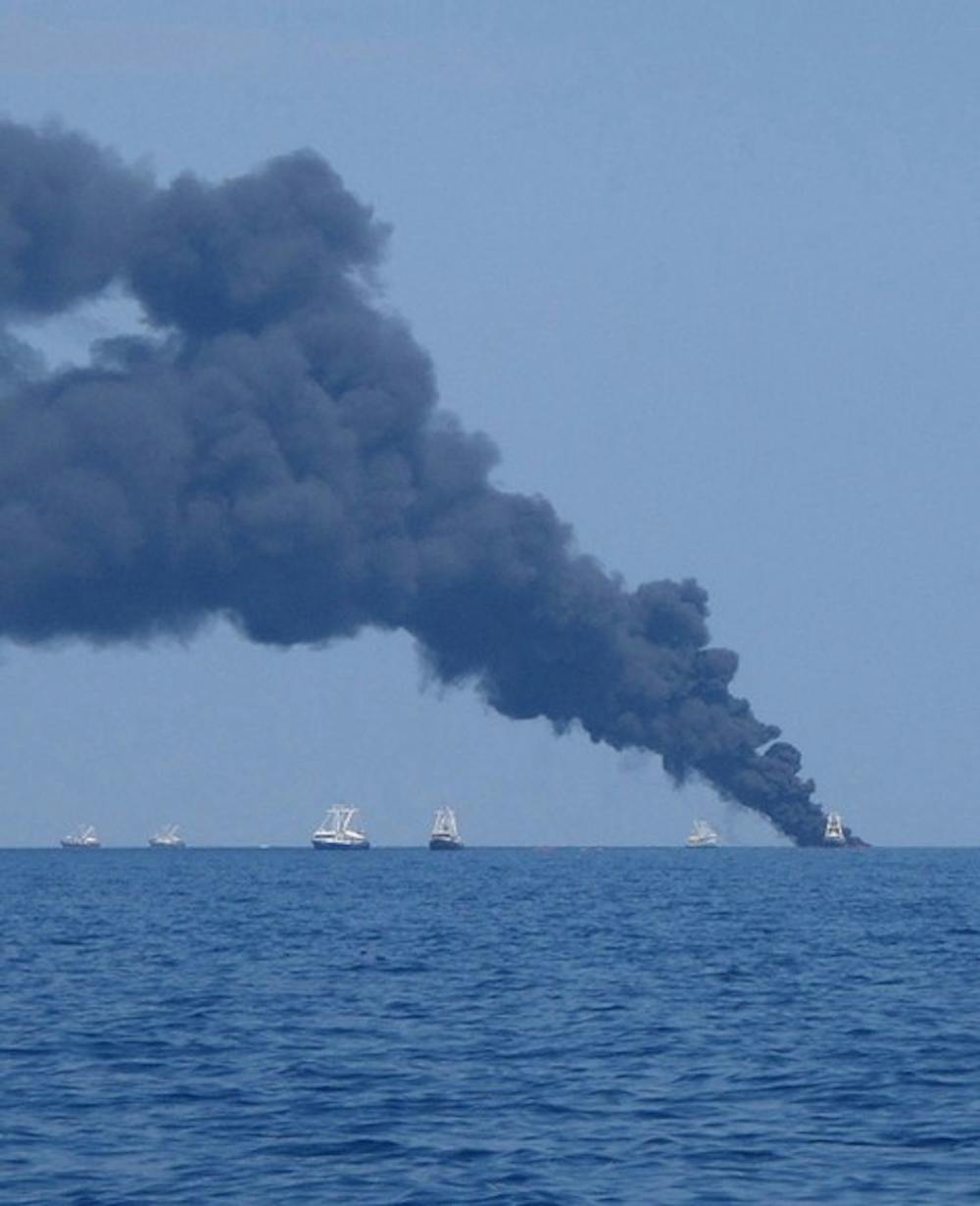Samantha Joye never expected to be on the front lines of one of the worst environmental disasters in U.S. history.
Joye, a UNC alumnus and marine sciences professor at the University of Georgia, led a research cruise through the oil-polluted waters of the Gulf of Mexico two weeks ago to confirm the existence of deepwater oil plumes from the BP oil spill.
“It is an honor and I take it as a great responsibility,” Joye said in an interview two days after she returned from the cruise.
“I want to do everything I can to make a positive difference. It has been life changing.”
The Walton Smith was followed for two weeks by national news organizations as the scientists on board, including two UNC graduate students, discovered firsthand the impacts of the oil spill on the deep waters of the Gulf.
Oil from the BP Deepwater Horizon oil rig has been surging from the ocean floor at depths of 5,000 feet, spewing estimates of 100,000 barrels of oil per day since April 22.
The research team was tasked with discovering the effects of an oil spill at such depths.
“The abundance of oil — and methane — in the water means that there is a lot of “food” for the microbial population,” Joye explained. “Stimulating microbial consumption of oil and gas will lead to increased oxygen consumption. Oxygen is a problem because if oxygen drops, animals can’t live in the water.”
When the team found that filters submerged within the oil plume they had been following contained petroleum, the major scientific discovery that could assist in cleaning up the spill and future spills was nevertheless disheartening.
“When the water collected from within the plume was transferred into collection bottles, we noticed an oil sheen. You could see it. Everybody saw it. Everybody got excited,” Joye said May 31 on her ‘Gulf Oil Blog.’ “Seeing is believing. Even more, the bottles from the plume layers smelled strongly of petroleum.”
Joye said it was difficult to use the word “excited” to describe how the ecosystem she’d fallen in love with as an undergraduate studying marine sciences was saturated with oil.
“The reality is that scientific discovery is exciting even under such disheartening conditions,” Joye said.
“We had a scientific job to do and we did it. The data got us excited. But I tell you, every time I went outside and saw a dead jelly fish or flying fish or oiled bird, my heart sank. It was very difficult.”
Research team members have now gone back to their respective labs and will analyze the data they collected for the next six weeks.
At UNC, Tingting Yang and Lisa Nigro will continue studying how oxygen depletion affects the microbial ecosystem and whether a certain bacterium could work best in bioremediation of a future spill.
“Biologically, we do not know the effects of the oil on marine life. We don’t know the effects of the dispersant either. Also unknown is how circulation will influence the spread of the oil,” Nigro said.
Joye said it’s impossible to predict if dead zones will result from the spill and how far these plumes will travel.
“I suspect the impacts will be long-lasting. The entire system has been turned upside down,” Joye said. “There is so much oil, and it’s everywhere. It will probably take decades for the system to recover.”
Contact the State & National Editor at stntdesk@unc.edu.
Alumna helps with gulf spill
Athens professor leads research cruise

Surface oil from the BP oil spill in the Gulf of Mexico is burned off by teams of relief workers.


